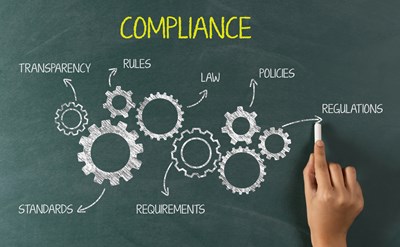There are two main types of exceptions, associated with RCRA regulated materials:
-
Exclusions
-
Exemptions
Exclusions - An exclusion means a material, like household waste or certain industrial byproducts, is not classified as hazardous waste under the Resource Conservation and Recovery Act (RCRA). Exclusions refer to materials or wastes that are not considered hazardous under RCRA, thus falling outside the scope of RCRA Subtitle C regulations. This means it’s completely outside RCRA’s strict rules, such as permitting or special disposal, and is managed under other regulations. RCRA exclusions are found at §261.4(a) "Materials which are not Solid Wastes" while §261.4(b) lists "Solid Wastes which are not Hazardous Wastes".
Exemptions - Exemptions apply to materials or activities that are still classified as hazardous waste under RCRA but are relieved from certain regulatory requirements under specific conditions. These exemptions do not remove the material from the hazardous waste definition but provide conditional relief, often requiring compliance with alternative standards or documentation. Primarily found at §261.4(c)-(f), which detail conditions under which hazardous wastes are not subject to full regulation.
Exemptions are typically narrower in scope (than exclusions), applying to specific scenarios where the risk is managed through alternative means, such as on-site treatment or limited quantities, ensuring the waste remains within the RCRA framework but with reduced compliance burdens.
In summary, exclusions and exemptions under RCRA serve different purposes: exclusions remove materials from hazardous waste classification, while exemptions provide conditional relief for materials still recognized as hazardous. This distinction is essential for proper waste management, regulatory compliance, and environmental protection, with clear legal bases in 40 CFR Part 261 and EPA guidance.
Companies who manage hazardous waste would be wise to research the applicability of a particular exemption or exclusion for their waste streams, to lessen their regulatory burden, avoid potential non-compliance, and to save money.
At Novesis we have extensive experience with all types of regulatory exemptions and exclusions, and understand the proper applications for each.
We have had great success arguing applicability of an exclusion or exemption in an enforcement setting, but prefer to advise our clients so to as to avoid the enforcement process all together.
When utilizing an exclusion or exemption it is necessary to properly document the applicability of your particular exemption or exclusion to prove it is applicable to your situation.
We have been very successful identifying exemptions and/or exclusions that simplify our client’s compliance obligations and save them significant cost for proper disposal of these materials.
In one case we saved our client over $1.5 million/year on waste management costs.
Incorrect application of an exclusion or exemption can have significant consequences.
At present there are approximately:
17 RCRA Exclusions
49 RCRA Exemptions
Let us review your operations to discover if you can utilize an existing exclusion or exemption!
